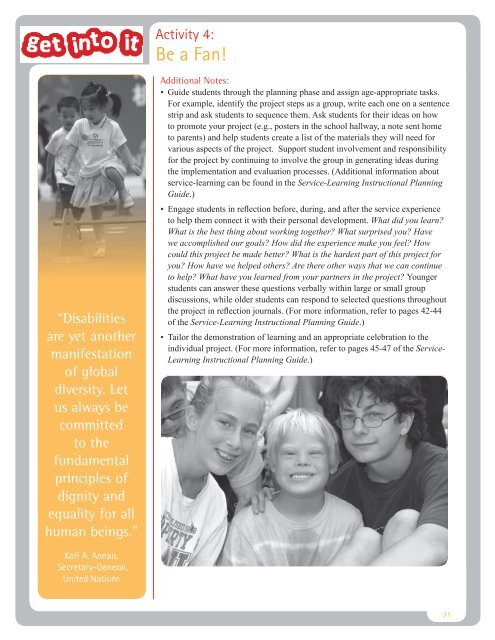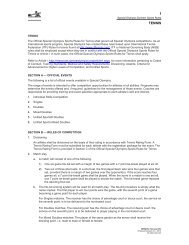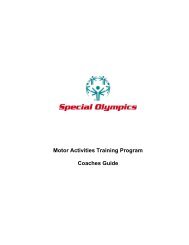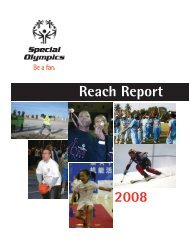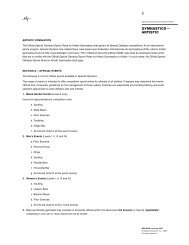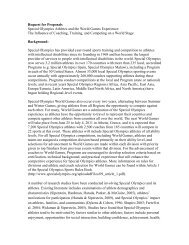Lessons - Special Olympics
Lessons - Special Olympics
Lessons - Special Olympics
Create successful ePaper yourself
Turn your PDF publications into a flip-book with our unique Google optimized e-Paper software.
“Disabilities<br />
are yet another<br />
manifestation<br />
of global<br />
diversity. Let<br />
us always be<br />
committed<br />
to the<br />
fundamental<br />
principles of<br />
dignity and<br />
equality for all<br />
human beings.”<br />
Kofi A. Annan,<br />
Secretary-General,<br />
United Nations<br />
Activity 4:<br />
Be a Fan!<br />
Additional Notes:<br />
• Guide students through the planning phase and assign age-appropriate tasks.<br />
For example, identify the project steps as a group, write each one on a sentence<br />
strip and ask students to sequence them. Ask students for their ideas on how<br />
to promote your project (e.g., posters in the school hallway, a note sent home<br />
to parents) and help students create a list of the materials they will need for<br />
various aspects of the project. Support student involvement and responsibility<br />
for the project by continuing to involve the group in generating ideas during<br />
the implementation and evaluation processes. (Additional information about<br />
service-learning can be found in the Service-Learning Instructional Planning<br />
Guide.)<br />
• Engage students in reflection before, during, and after the service experience<br />
to help them connect it with their personal development. What did you learn?<br />
What is the best thing about working together? What surprised you? Have<br />
we accomplished our goals? How did the experience make you feel? How<br />
could this project be made better? What is the hardest part of this project for<br />
you? How have we helped others? Are there other ways that we can continue<br />
to help? What have you learned from your partners in the project? Younger<br />
students can answer these questions verbally within large or small group<br />
discussions, while older students can respond to selected questions throughout<br />
the project in reflection journals. (For more information, refer to pages 42-44<br />
of the Service-Learning Instructional Planning Guide.)<br />
• Tailor the demonstration of learning and an appropriate celebration to the<br />
individual project. (For more information, refer to pages 45-47 of the Service-<br />
Learning Instructional Planning Guide.)<br />
71


